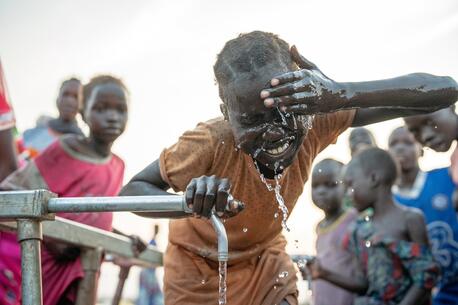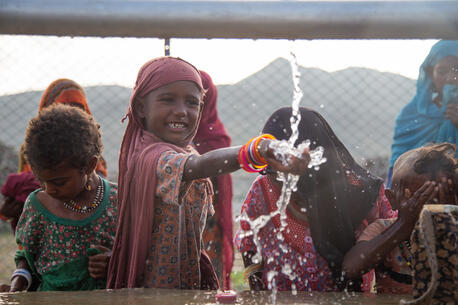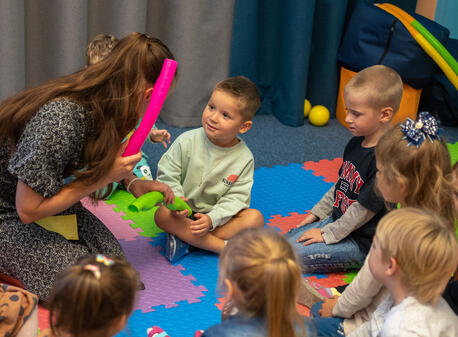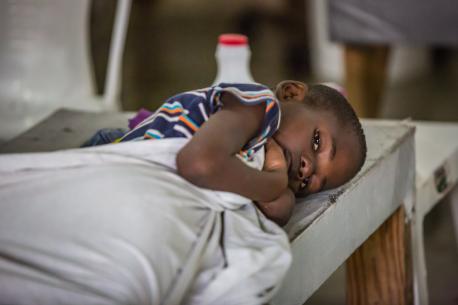
After the Hurricane: How UNICEF Worked to Stop Cholera in Haiti
Watch how UNICEF and partners are combatting a life-threatening disease "caused by dirty hands and dirty water" in the aftermath of a hurricane.
When Hurricane Matthew slammed into Haiti on Oct. 4, 2016 — the worst storm the impoverished nation had seen in decades — it made an already precarious situation even worse.
Even before the storm made landfall, 40% of the population got their water from an unsafe source, which carries a high risk of cholera, a dangerous waterborne disease. There were 27,000 cases of cholera reported last year, a third of them children.
And then the hurricane hit, damaging homes and critical infrastructure— including water and sewer lines — polluting the public water supply and exacerbating the risk. Cases of cholera quickly surged.
If left untreated, cholera can kill. Watch how UNICEF and partners went to work to stop the spread:
Cholera is a highly contagious bacterial infection of the intestines that causes severe vomiting, diarrhea and dehydration. It is particularly life threatening for young children, especially those already weakened by malnutrition.
It's about spreading awareness, so people don't die
UNICEF and partners responded in the worst affected areas with support for health clinics providing treatment with oral or intravenous rehydration. Response teams continue to work with community water and hygiene specialists to encourage proper hand-washing and the use of water purification tablets, and to dig latrines and warn against open defecation.
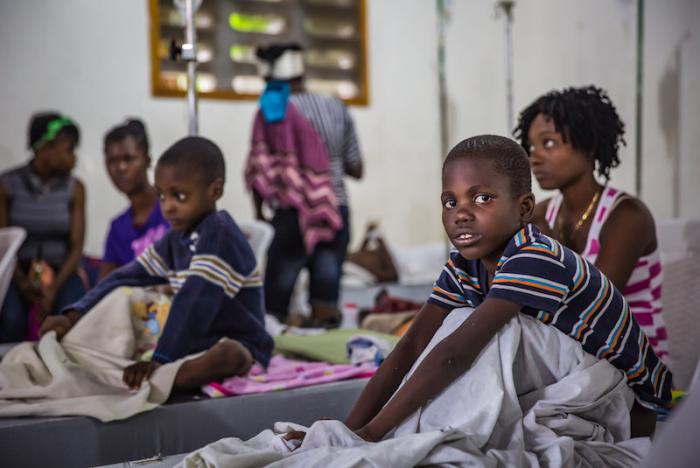
Cholera patients at a treatment center in Cap-Haïtien, Haiti. © UNICEF/UN041174/Bradley
"It's all about spreading awareness, so that people don't die from this disease," says Louis Lamour, a water and sanitation agent in Haiti who also appears in the video. "What motivates us first and foremost is saving lives."
UNICEF is also working with community water agents and the Haitian government to test and treat water sources.
Help keep the children of Haiti healthy.
Top photo: A young boy receives treatment for cholera at a health center in Cap-Haïtien, Haiti. © UNICEF/UN041183/Bradley
